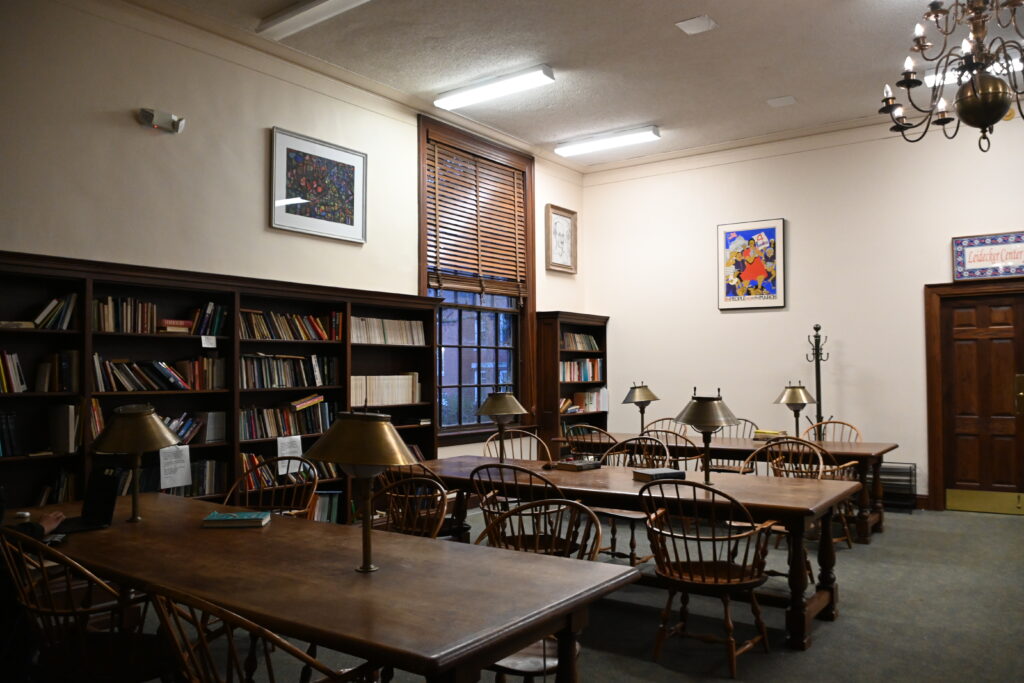Op-Ed: In defense of the humanities
3 min read
The Margaret E. Sutton, Gertrude and Alfred Levitt Room is on the first floor of James Farmer Hall. | Abbey Magnet, The Weekly Ringer
by WALKER RAMSPOTT
Contributing Writer
The humanities as an academic field is dying. Indeed, in an era of postmodernity, industrialization, and secularism, it is only natural that a field like the humanities—seemingly “useless” in the modern world —is on the decline.
However, as President Ronald Reagan succinctly put it, “The arts and humanities teach us who we are and what we can be. They lie at the very core of the culture of which we’re a part.”
So why, in the 21st century, is the humanities, a field that has existed since the Greeks and Romans, so looked down upon? It’s simple, really: The modern age stresses technological and machine development, thus many see the humanities as a leisure activity that does not contribute to the overall well-being of modern society. This couldn’t be farther from the truth, however.
For example, using an example of modern development— AI, in this case— we must look at the ethics of it through a philosophical lens, as we must grapple with issues such as worker alienation and replaceability, in an age where many are worried about the mass job loss we may see due to our creation; we must use logic and reasoning, which are an essential practices in the field of the humanities, and of the liberal arts in general, to work our way through this ethical dilemma.
This is just one example, however, but the use of disciplines such as history, philosophy, literature, religion, and the classics can be used for so much more, and indeed it has in history.
Our Founding Fathers, for example, in their quest to create a free republic, studied much of the past (history & classics) for historical precedent; studied the reasoning and ideas of past thinkers (philosophy); and studied how belief systems affect the course of civilizations (religion).
Thus it is very frustrating to see how many individuals of our day talk about how the humanities, in its search and study of the human world and society, are not worth studying in the modern, secular West. “Humanities is the worst thing for an industrialist,” said Andrew Carnegie — of course, it is, for why should the worker drone of the industrial age think of anything human when they should be focusing on materialist goods?
Imagine the world so devoid of its human element, a world without art, music, theater, or literature: A world that focuses so much on the material that it forgets what made it— its humanity. A world like that sounds despotic, like Orwell’s 1984; a world with humanity, reasonable, logical and beautiful.
Now, this is not to dismiss the push and development of the STEM fields, as they are very important themselves; we must adapt to our environments, and our environments demand scientific and technological research on a grand scale to accompany our era’s booming development.
Yet, it is important that we do not lose the connection that we have to our past by removing what we deem, in our age, to be impractical, lest we lose all that our ancestors gave to us, and we ignore their advice and have our civilization think too highly of itself —ignorant, in fact, of the past— and fly too high, like Icarus, thus falling into our oblivion by our thinking that self-reflection and study did not matter in a world that seemingly didn’t need it.


